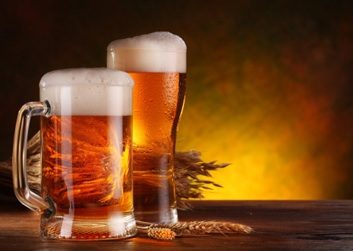
Chocolate
Chocolate may improve your skin, according to researchers at Germany’s Heinrich Heine University. They exposed chocolate eaters to ultraviolet light and found that after six weeks, they had 15 percent less skin reddening than those who didn’t eat it.Not only that, but Georgetown University researchers found that when breast cancer cells were treated with chocolate flavanols, the cells stopped dividing. Chocolate has also been shown to help blood flow and boost brain power.

Coffee
Moderate coffee consumption has been shown to have a few health benefits. It may lower the risk of type 2 diabetes, gallstones, colon cancer and Parkinson’s disease, and improve cognitive function. Recent studies have also shown that it may reverse memory loss and help prevent heart failure.

Red (and white) wine
A study published in the Journal of Agricultural and Food Chemistry compared the antioxidant effects of resveratrol (from red) and tyrosol and hydroxytyrosol (from white) on rats. The results suggest that white wine is just as powerful as red in improving heart function and preventing artery blockage.

Beer
Beer is made from hops, barley and wheat, so the beverage contains many of the same nutrients that grains do, including B vitamins, riboflavin, niacin and zinc. A bottle of beer can contain 92 mg of potassium, 14 mg of calcium and 48 mg of phosphorus, all minerals that are essential to a healthy diet.
Beer is also a source of soluble fibre, which comes from the barley. According to The Brewers of Europe, an organization that represents European breweries, two glasses of beer can provide 10 percent of your recommended daily fibre intake.
Beer contains antioxidants as well. A study published in the Journal of Nutrition and Biochemistry suggests that the levels of antioxidants found in blood are elevated after beer is consumed.
